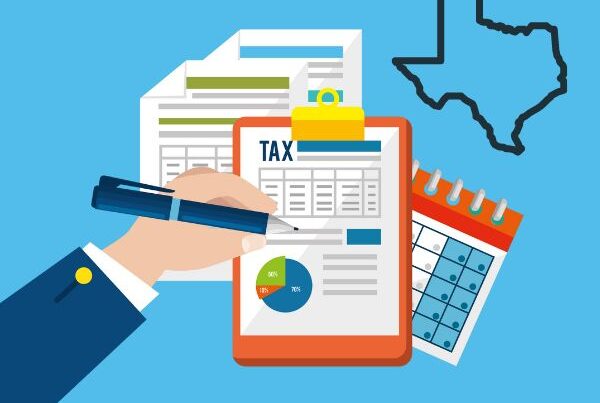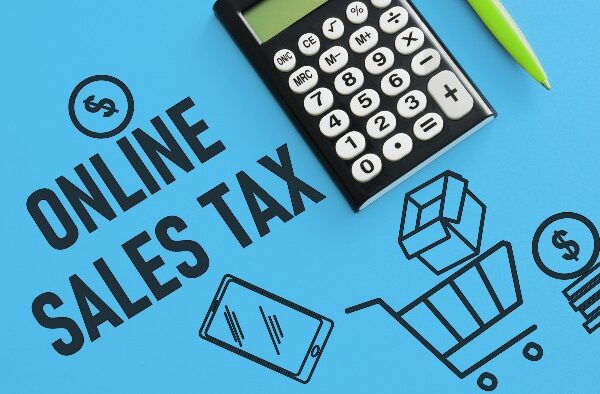Marketplace facilitators contract with third-party sellers, allowing sellers to sell goods and services through their platform. Examples include companies like Amazon, Etsy, eBay and Walmart. (For a list of the best ecommerce marketplaces for online sellers click here.) Many of these marketplaces feel they should not have to collect and remit taxes for third-party sales. They argue that they are just the platform, (not the actual seller). It makes sense when they put it that way, right? Despite that, in 2017 marketplace facilitator tax laws began to require them to collect and remit sales taxes for sellers. And although some marketplaces might not be happy, states and businesses have a lot of reasons to be happy about that.
The Why Behind Marketplace Facilitator Laws
States realized Amazon didn’t charge sales tax on third-party sales. This was a problem because more than half of Amazon’s sales were through the marketplace. So, a large amount of revenue was missed out on. FOMO is a real thing people. And missing out on revenue is no joke. Think about it this way. All these top dog facilitators put on this huge party. They are throwing cash around at this party. And it is in your backyard. Wouldn’t you want them to throw some cash your way too? That is how the states feel. (Although it’s more of a cyber-yard.)
In the past, if third-party sellers didn’t have nexus (triggered by a physical location, store product, employee staff, or number of transactions or sales), then it didn’t have to collect sales tax for sales in that state. And once again the state missed out on all that revenue.
Also, facilitator laws make things simpler for states. Instead of having to collect all the sales tax from tons of small companies, states can collect it from one large entity (the marketplace). A great example of this is Amazon. Instead of having to collect from each third-party who sells on Amazon, a state can collect from Amazon itself. So, this greatly reduces the cost of compliance for the state to claim their revenue. (For more on Amazon marketplace facilitator laws and info click here.)
These laws also make things much simpler for small businesses who sell through marketplaces. You don’t have to collect and remit sales tax (for sales on marketplace facilitator channels). Companies like Amazon are doing it for you in most states. This saves businesses time and money. And more so if you have a lot of customers, do a lot of transactions, and sell through multiple platforms.
State Marketplace Facilitator Tax Laws
There are some big changes and updates to marketplace facilitator laws that took place on October 1st, 2019. What changes took place you may ask? Well, just that 13 more states will now start having facilitators collect and remit sales tax! These states are:
Alabama
Marketplace facilitators with sales of more than $250,000 must collect sales tax on behalf of third-party sellers. There is non-collecting seller use tax reporting in the state.
Arizona
Marketplace facilitators that have third-party sales in the state must collect and remit Arizona “transaction privilege tax” on third-party sales if certain conditions are true. There is no non-collecting seller use tax reporting in the state.
California
Marketplaces that sell or facilitate sales of tangible personal property into the state, must collect and remit sales or use tax on all sales made through the marketplace for delivery in the state. The collection requirement applies to in-state and out-of-state marketplaces whose sales of personal tangible property (in CA) exceed $500,000 in the current or prior year. There is no non-collecting seller use tax reporting in the state.
Colorado
Marketplace facilitators that are required to collect and remit sales and use tax and sell or facilitate sales of tangible personal property or services in the state, must collect and remit sales and use tax on all sales made to Colorado consumers made through their marketplace. There is non-collecting seller use tax reporting in the state.
Maine
Marketplace facilitators that have nexus in Maine must collect and remit sales tax on all marketplace sales for delivery in Maine. Facilitators should include all sales made through the platform when they calculate the economic nexus threshold. Threshold amounts are $100,000 in sales or 200 transactions of electronically transferred property, tangible personal property, or taxable sales in Maine. There is no non-collecting seller use tax reporting in Maine.
Maryland
Marketplace facilitators that need to collect sales tax, sell or facilitate sales of intangible personal property into the state, and process payments for third-party sellers must remit and collect sales tax on all sales made through the marketplace for delivery into the state.
There is a waiver for this collection requirement for facilitators and sellers if:
- The seller is a publicly traded communications company;
- the facilitator and seller have an agreement that the seller will remit and collect taxes;
- Third-party sellers provide evidence to marketplace facilitators that the seller is licensed to engage in the business of an out-of-state vendor in Maryland
There is no non-collecting seller use tax reporting in the state.
Massachusetts
A remote marketplace provider that makes or facilitates more than $100,000 in sales in the commonwealth in the current or prior taxable year, must collect and remit tax on all taxable sales made through the marketplace in the state. A facilitator that isn’t remote must collect and remit tax on taxable sales made through the marketplace in the state if it makes or facilitates more than $100,000 in sales in the commonwealth in the current or prior taxable year. There is no non-collecting seller use tax reporting in the state.
Minnesota
Marketplace providers that facilitate retail sales when they process payments or list and/or advertise products through a third-party (directly or indirectly), must collect sales tax on all taxable sales into the state. Unless, the marketplace seller has taxable retail sales through the marketplace of less than $10,000 in twelve months, elects to register and collect state sales tax directly, or the marketplace doesn’t maintain a place of business in the state. There is no non-collecting seller use tax reporting in the state.
Nevada
Marketplace providers have to collect tax for Nevada sellers if, in this or the prior year, it had cumulative gross receipts of more than $100,000 from retail sales made or facilitated to customers in the state, or made or facilitated at least 200 retail sales transactions in this or the prior year. A marketplace and seller can agree in writing, to have the seller collect the tax instead. So, yes and no; by agreement there is non-collecting seller use tax reporting in the state.
North Dakota
Remote marketplace facilitators must collect and remit sales tax on all sales into North Dakota if the marketplace makes or facilitates more than $100,000 in gross sales or has at least 200 transactions of tangible personal property or other taxable items in the state in the current or prior calendar year. There is no non-collecting seller use tax reporting in the state.
Texas
Marketplace providers that need to collect Texas sales or use tax and sells or facilitates sales of taxable items into Texas, must collect and remit sales or use tax on all sales made through the marketplace for delivery into Texas. There is no non-collecting seller use tax reporting in Texas.
Utah
Marketplace facilitators must collect and remit sales or use tax on all Utah sales if in this or the prior calendar year, it has more than $100,000 in gross revenue in Utah or makes at least 200 separate transactions in the state. When calculating these thresholds, a marketplace needs to include all sales made through the platform (third-party as well as its own). There is no non-collecting seller use tax reporting in Utah.
Wisconsin
Remote marketplace facilitators with over $100,000 in gross sales in the state, or 200 or more transactions in the state in the current or prior calendar year, must collect and remit sales tax on all sales made or facilitated in the state. There is no non-collecting seller use tax reporting in the state.
Don’t be surprised if there are more changes to come! (For info about the new nexus laws click here).
Non-Collecting Seller Use Tax Requirements
This aspect of state laws is strange. In some states, sellers (and marketplace facilitators) can opt out of the laws if they follow non-collecting seller use tax reporting requirements. (In English that means marketplace facilitators can opt out of having to collect and remit sales taxes in some states). The laws for non-collecting sellers vary by state, but most require facilitators or sellers to:
- Let customers or third-party sellers know they must report and pay the sales/use tax on their own purchases/third-party sales.
- Provide a yearly purchase summary to customers/third-party sellers.
- Send a yearly customer/third-party sales report to the state tax authority.
When looking at the new laws it seems most states don’t have non-collecting seller use tax reporting. However, there are a few states who do have it. Out of the states who have adopted or updated their marketplace facilitator laws as of October 1st, 2019, Alabama and Colorado are the only ones who have non-collecting seller use tax reporting. Although, Nevada has it if certain conditions are met. Non-collecting seller use tax reporting laws came into play in Alabama at the start of 2019. While Colorado has had them in place since 2017. Nevada recently updated its non-collecting seller use tax reporting laws as of October 1st of this year (2019).
For a more detailed list of these reporting laws by state click here.
What This Means For Third-Party Sellers
There are a lot of changes being made, so it is crucial to stay informed. However, as states adopt and change marketplace facilitator tax laws, things become less complex for online sellers as the responsibility to collect and remit taxes transfers to the marketplaces. If you sell on a marketplace such as Etsy, Amazon or Walmart this gives you one less thing to worry about. You won’t have to collect or remit sales taxes on every sale; your marketplace will do it for you in those states. Just don’t forget to collect and remit sales tax for sales that are not through a marketplace; such as through your own website. Or for states where you have economic nexus but no marketplace facilitator laws exist. Not having to collect and remit sales taxes on your marketplace sales will save your company time and money.





